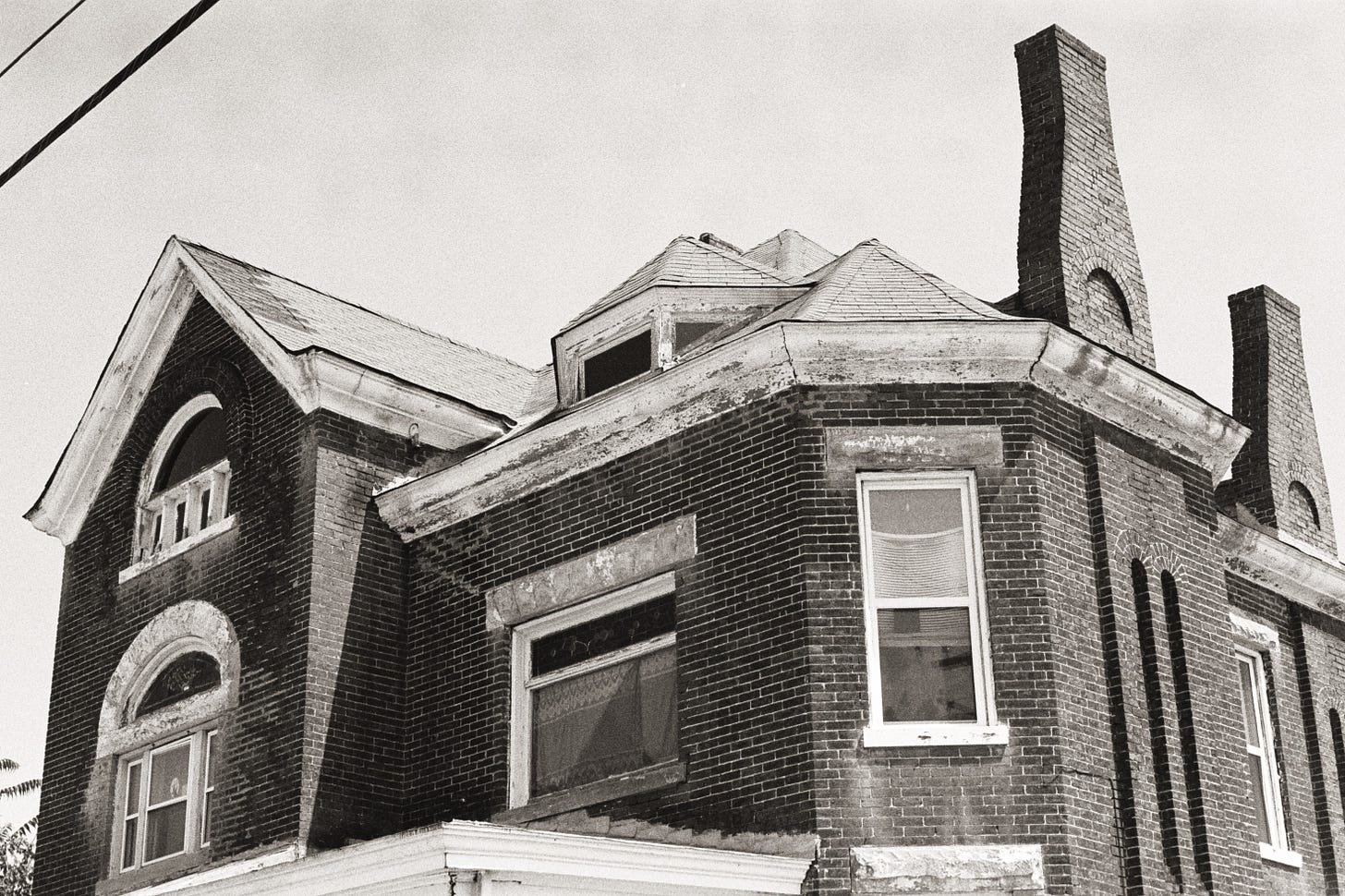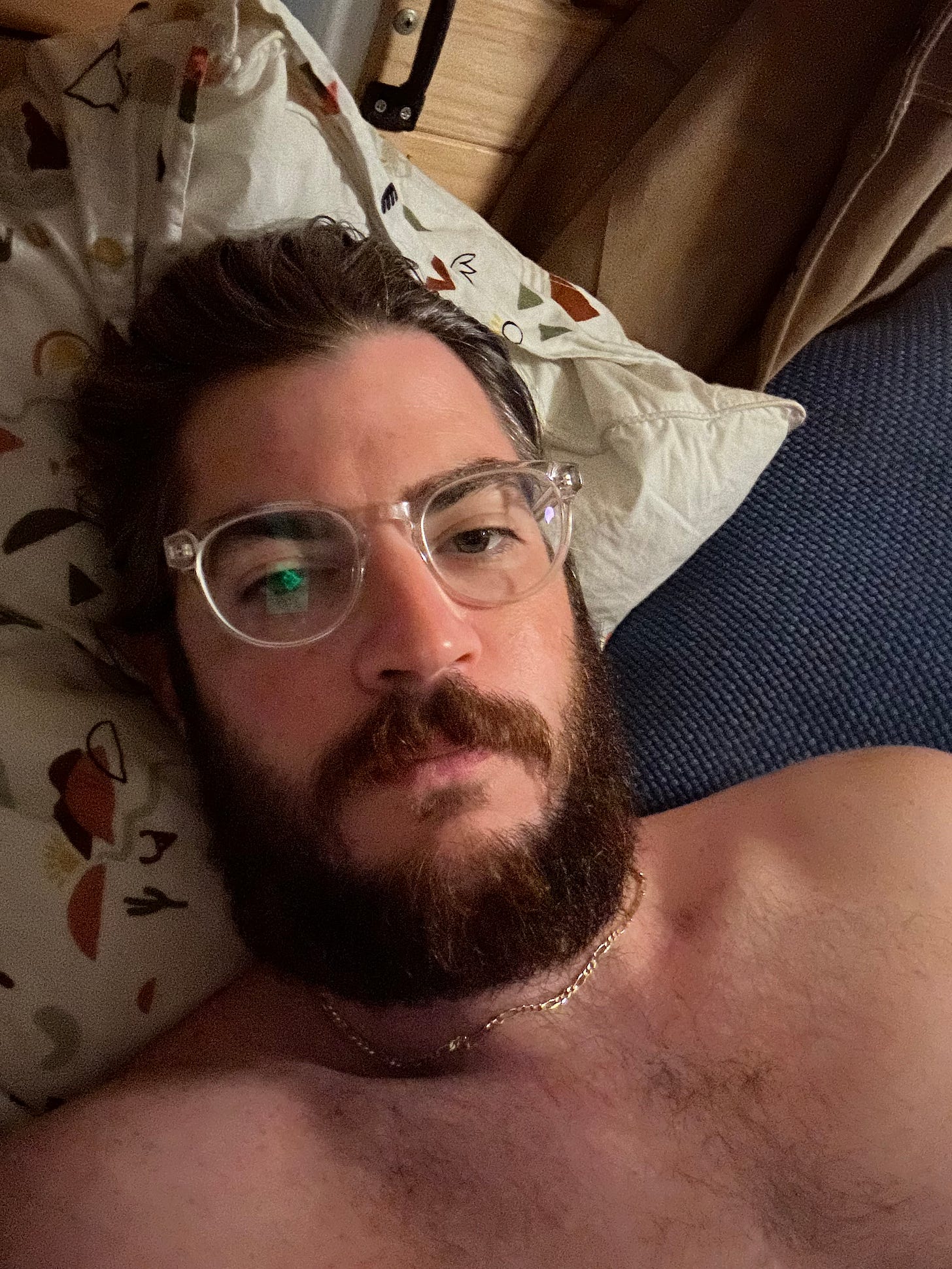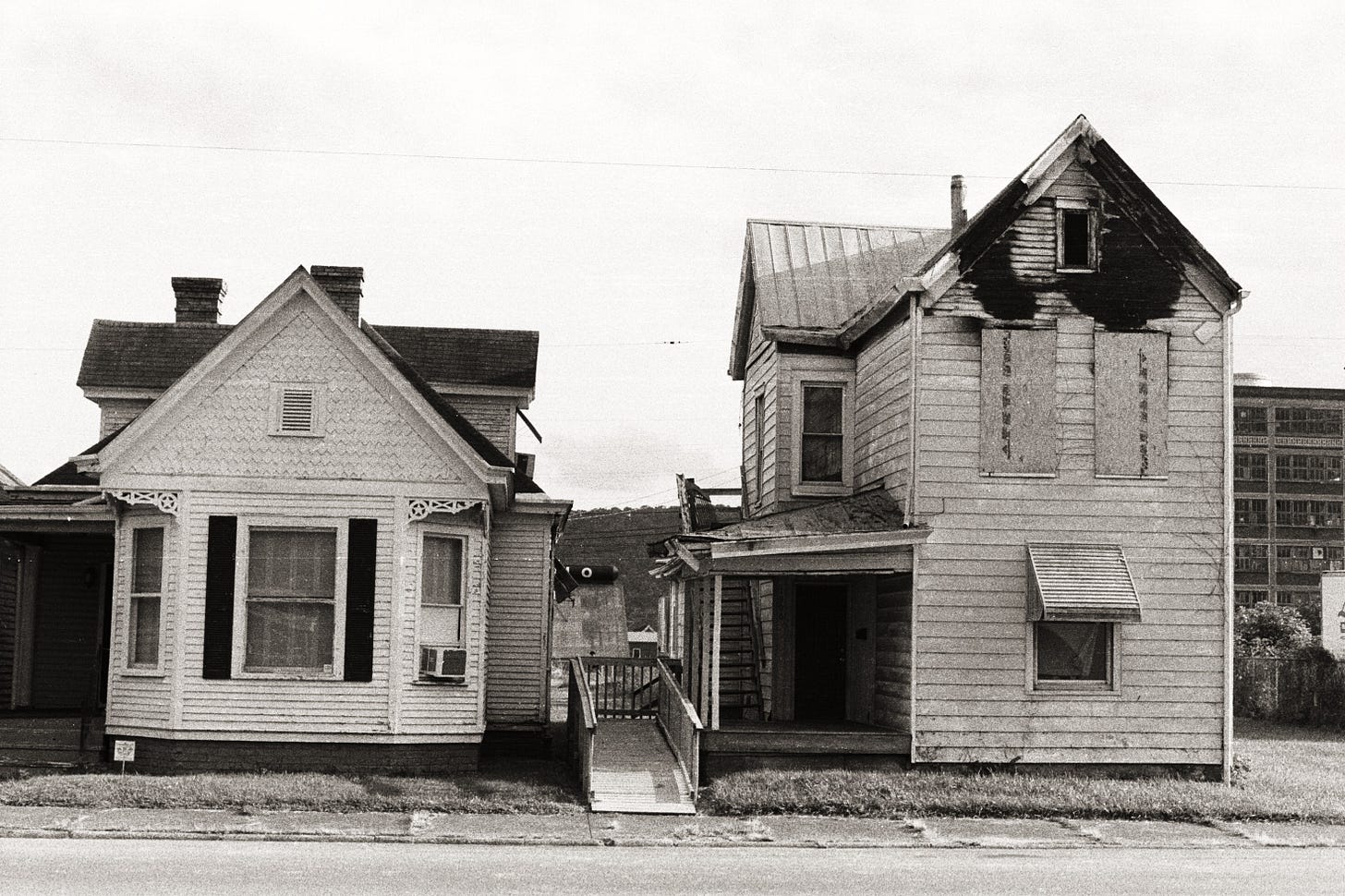BRIEF BLUE RIVER #4
my own private Barbenheimer, except its just opposite sides of the Ohio River
Thursday, August 17th
When I’d gone to bed, a headache was already coming on. I was out of readily available water, and the late-night street sweeper made me nervous about where I’d parked. At 4:30, the pain became enough for me to perform the tetris required to liberate the water can stashed behind the cupboard door crushed against the bed frame. I took two Advil and pissed, more leaked, into a Mason jar. I writhed for the next few hours, enduring the cacophony of diesel engines. I woke up to a parking ticket.
I wanted breakfast and needed to charge my phone—my solar panel hadn’t recharged the battery since Florida. I was parked next to a place called Coco’s, which advertised breakfast and lunch, the former ending at 10:30. The staff were prickly the way all liberal lesbian islands are, being who they imagine to be the most-evolved of an otherwise backwards place.
I ate a salad and got hydrated. I need to do laundry, I thought. I don’t know where I’m going today, but I do know there’s a river across the border in Ohio not more than two and a half hours from here, and two and half hours of driving may be all I can do after so little sleep.
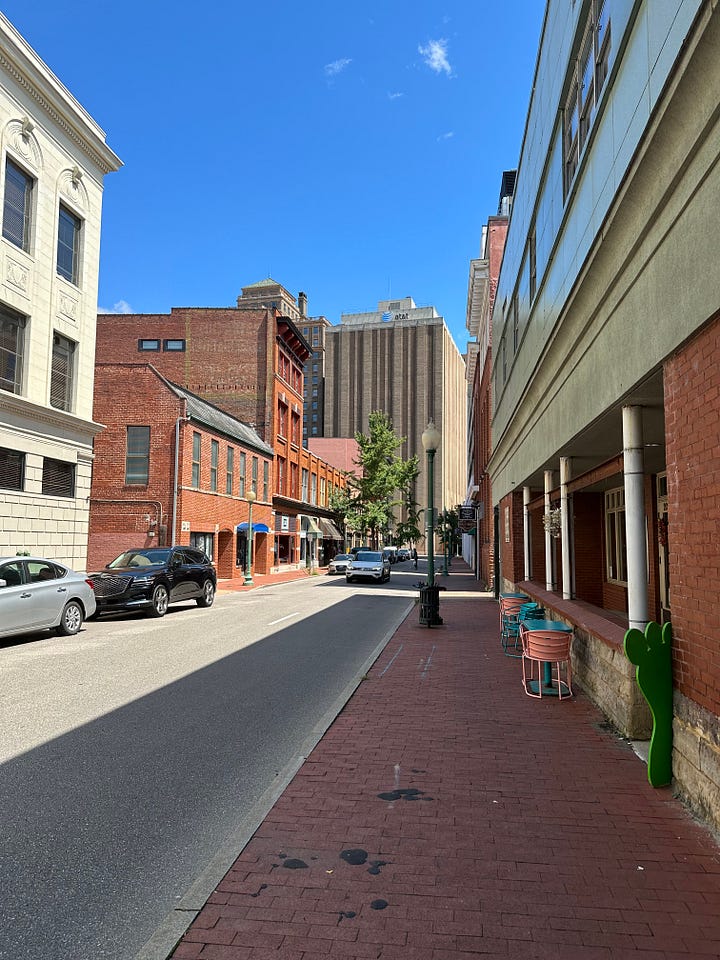
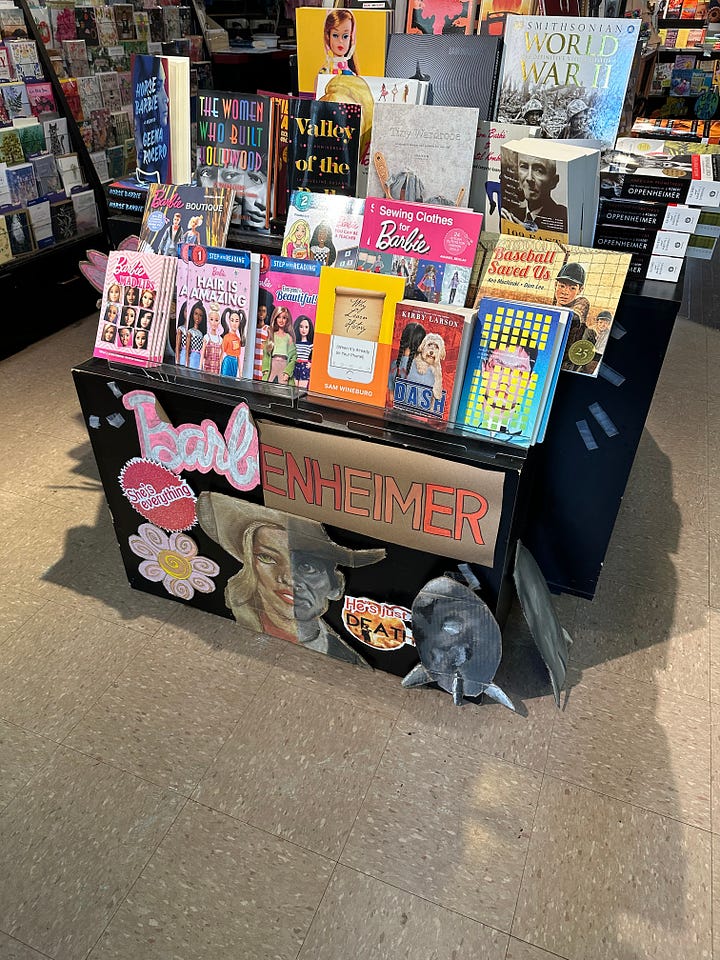
Around the corner was Taylor Books. I was familiar with the place, having called several times to secure their business with the magazine, and visiting revealed why they’d been reticent. Like the lesbians at Coco’s, the booksellers of Taylors seemed to view themselves as the bastion of the liberal identitarian cause—most bookshops are—a judgement I based solely on which titles and authors they had on display (the cause is always signaled). I checked to see if they still had the magazine in stock and purchased two post cards.
Back on the other side of the block, there was a legal-ish pot shop where I bought a couple pre-rolls of loophole marijuana. I tidied the back of the van, sloshed the dark yellow piss against the curb, snatched the ticket from beneath the windshield wiper and got on my way.
At a large, new and vacant laundromat on the outskirts of Charleston, I read Blue Highways as the wash spun. I thought of Bill, of his pace, of how he asked questions and how people used to talk, how they treated strangers. Finding myself more and more comparing my journey to his—and of course my writing to his—I realized that what I am really looking for is my own encounter, deep and intimate, with the formerly unimagined and unimaginable, my own Nameless, Tennessee.
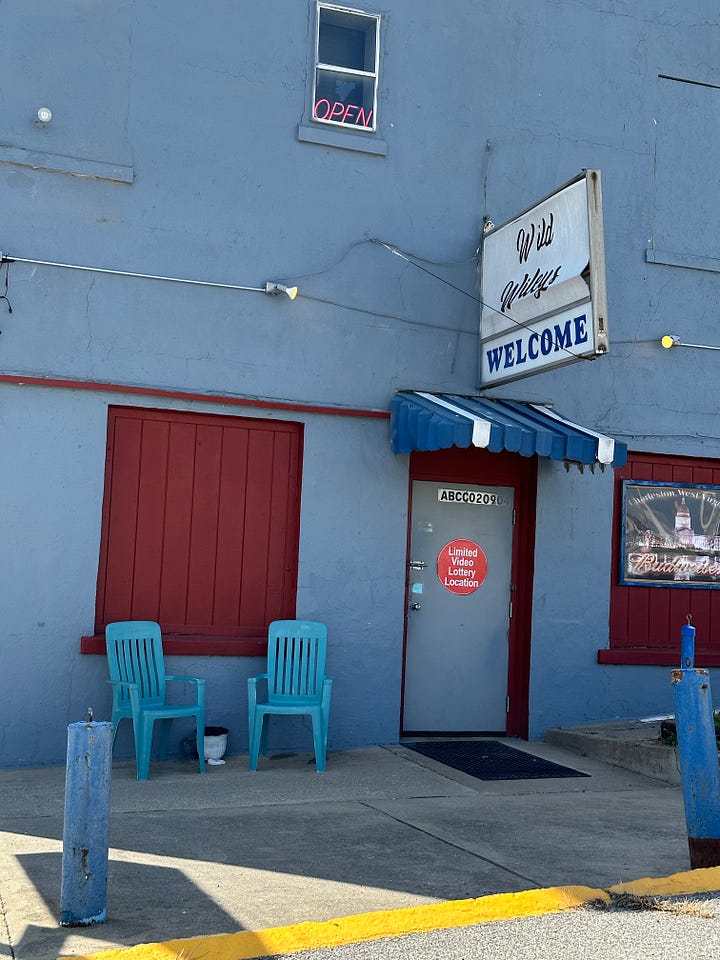
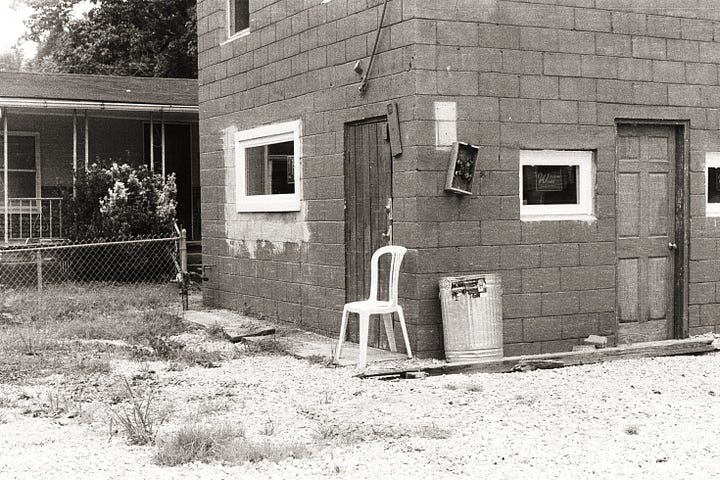
It takes a long time to slow down. Time I don’t feel I have, can’t take, won’t take. I’m weary, and not for the first time. A product of a certain, opposing inertia, the acceleration of which contours the near-half millenium separating Bill’s and my trips, makes the right pace seem unreachable. The dollar has inflation; what does time have? What is a 2023 minute in 1980s minutes? I might be doing more than he did, albeit with a far smaller word count. At least that hasn’t changed. There are slow writers and fast writers; the slow ones are diligent, the fast ones spasmodic, and so the balance is universal generation to generation—exceptions abound. And those are just the names we remember.
Laundry has its own inflation. The extra-large washing machine at [name] cost $12.00 for a load. When I saw this, I pulled out my clothes and tore a scrap from the small box of Tide and carefully transferred what I could of the powdered detergent to a $6.00 machine. The Tide had cost a dollar and a half, leaving me with $2.25 in quarters after I changed a $10 and lost two quarters to the big washer. The dryer I needed was $2.75. I only found one more quarter under the van’s passenger seat.
I almost changed a twenty I’d pulled from the store’s ATM, which had a $4 fee, but I opted for downloading the propritary app, which required that I sign-in my Apple ID beforehand and create an account complete with my birthdate and a special password with at least one uppercase letter, a lowercase, and a number. I put in Boo8sNTits and confirmed my email address. After putting in the store’s location and the machine number, Apple Pay scanned my face to place the charge—had it noticed my newly brushed hair?
As the clothes and bedding turned: fifty push-ups, light stretch, a bottle of water and four rounds of a plush-toy claw game—I failed to win Susanna a devilish-looking red bull. The lesbian—I kept seeing them in their more obvious, local manifestations—that had been in before, and who drove off between cycles, came back. Four others entered. A white hick, a black hick, and a hick couple. I made my bed in the parking lot, loaded up and left, stopping for a Redbull, some water, a can of Spam, another of chicken noodle soup, a Cup Noodle and a Reeses. At a Hardee’s, I ordered a chicken sandwich and felt ready for the day’s roading.
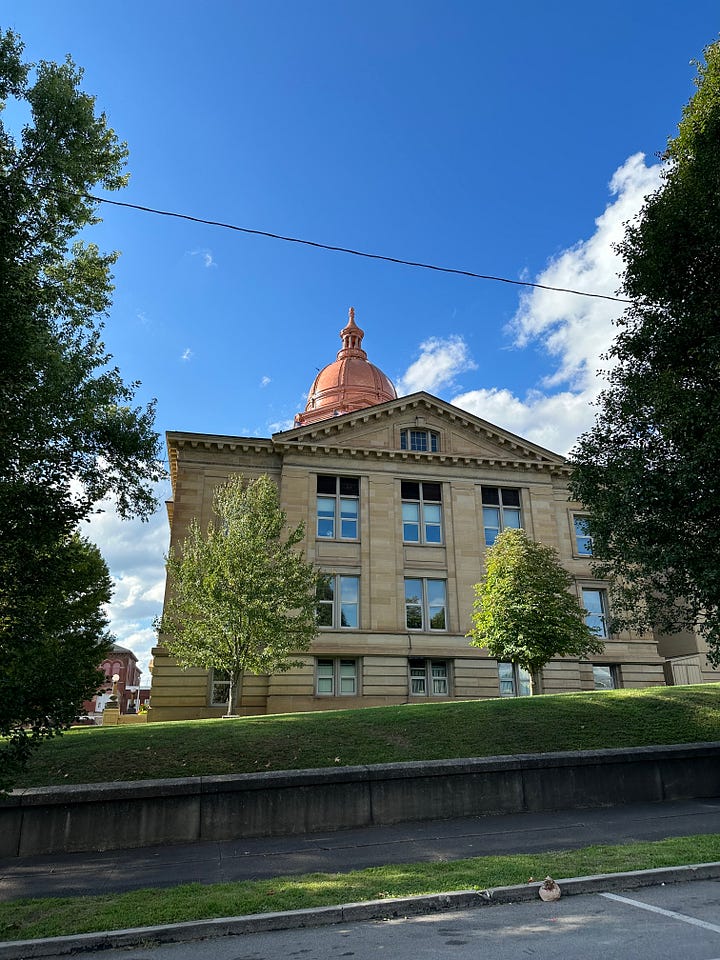
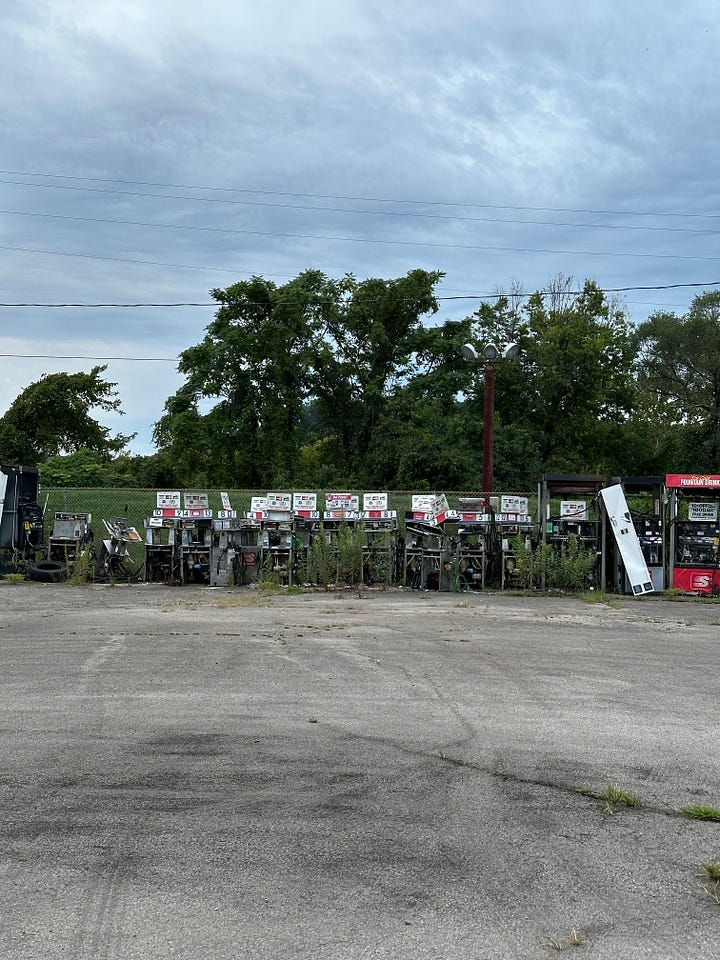
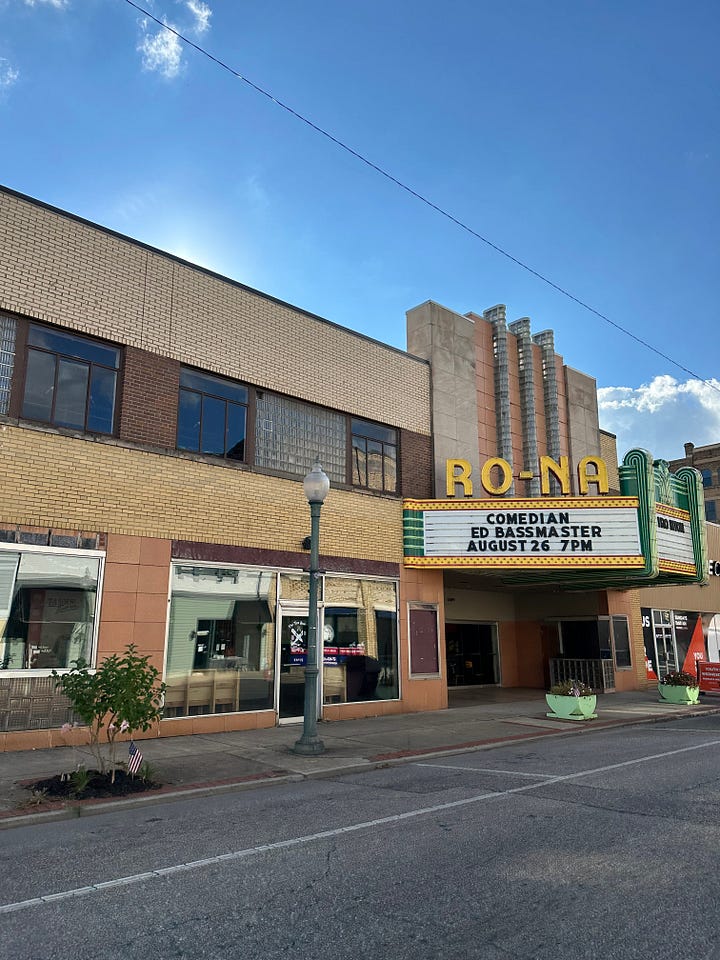
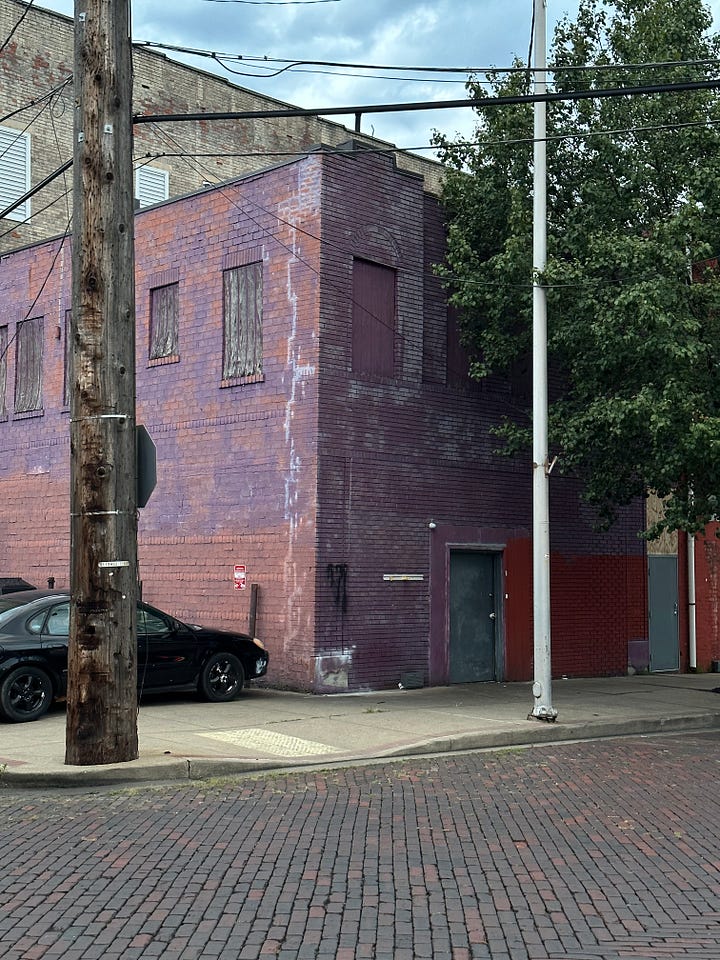
The towns got boring. Free standing chain units all the way down. The mountains became a memory, the air got hotter. Between Charleston, which is no longer West Virginia topographically, and Ironton, which is more Kentucky culturally, the highway feels like an interstate, a freeway called the Ohio Bay Scenic Byway from which, going north, there is no view of the Ohio River.
It wasn’t a long drive, but it was a blur, a reminder of why not to take such roads. Driving at a consistent 65 miles per hour, my window had to be up, and I sweat through the back of my shirt and into the upholstery. I had plenty of water this time. I listened to an interview with Ric Flair. It took four hours to drive seventy mile, mostly out of the way and towards disappointing alternatives.
After arriving in Ironton for the first time around five o’clock and taking a quick turn around what looked like an impressive small place, the kind that used to have much loftier ambitions, I left to find a river to camp near. I wanted to wash, even if inadequately, before sleeping on fresh sheets.
I wound a few miles of the sickly looking Strom’s Creek. I did the same at Little Scioto River off of Sciotodale, which looking without character and unlike Ironton to have never been impressive, I didn’t visit. Past New Boston, Portsmouth has the Scioto River, the big one, but it is an incredibly rundown, forgotten place. The homes of Porstmouth must have once all been beautiful and shining with effort, but now too many are partially burned or stapled with eviction notices and letters of condemnation. Presently operating downtown storefronts appeared to be following their darker neighbors and not too far behind.
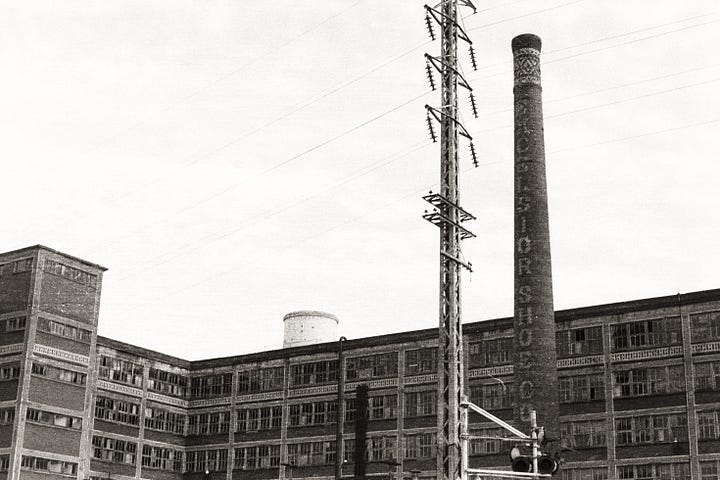
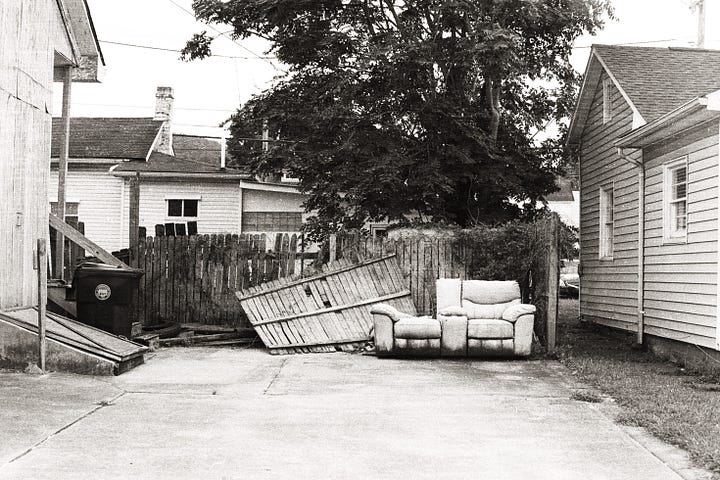
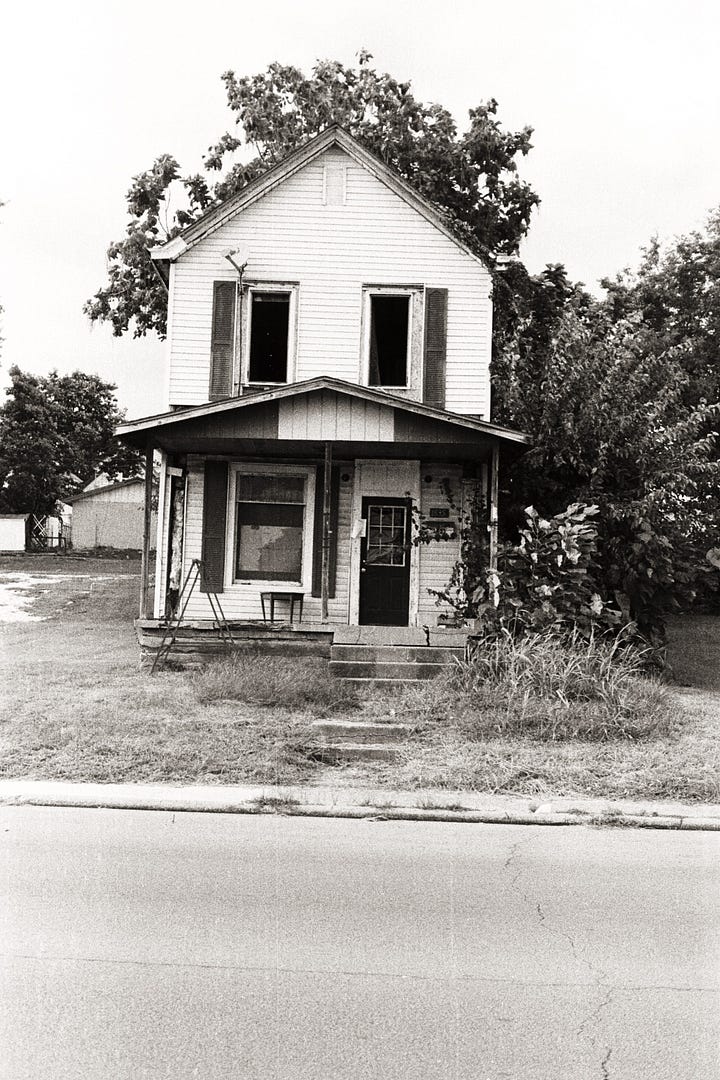
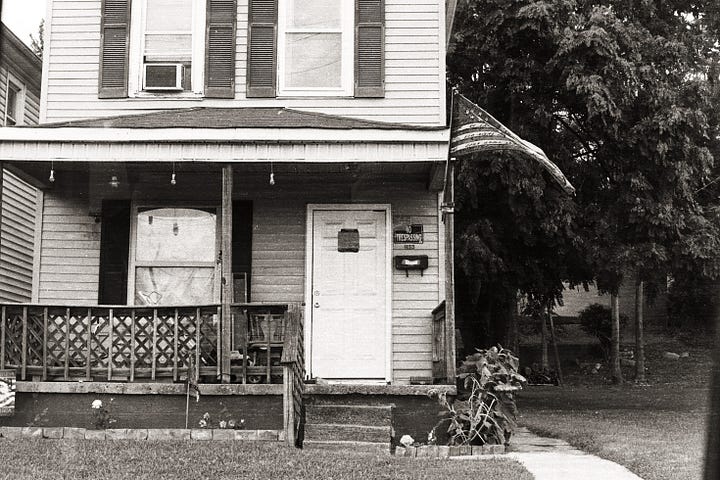
There was no place I wanted to park the van for the night, so I took a few pictures of the closed factory’s broken windows and crossed the bridge into Kentucky, trading semi-urban, industrial decay for The Gateway to Country Music—Highway 10.
Tygarts Creek snakes over fifty miles into the state, breaks into two parts and continues. I followed it for about ten before concluding that Kentuckians love their private property. Neither side of the creek seemed suitable for parking any amount of time, no turn-offs or public access points. Set into a gulch, Tygarts is deep, and where it is visible, it is a muddy brown thing. What mountains there are across the Ohio are related to those you see in West Virginia in name alone, like the distant descendents of a mythical race of Titans now made man, and crumbling.
My first fake ID was a real Kentucky license stolen from a backpack on Panama City Beach during a college spring break I wasn’t a part of. When I rounded a corner off of Sunshine Community Church, so iconic a Kentucky scene broke open that my mind instantly recalled the ID’s background image—minus the horses. I regretted having to leave the cooler, still-Appalachian creekborn air, but Ironton had been a better bet for bedding down, and I turned back down Highway 10, and by a different bridge, crossed back into Ohio after much looping in the northeastern Kentucky hills.
A train still runs, but an old track has been torn up, its steel ties piled and rusting underneath the bridge I took into Ironton. I parked on 2nd Street; like my own hometown, this one has a Center, and not a Main.
Inside the building that used to be the train station, there is a bar that serves Chinese, among many other, foods—they had a rack of lamb special. There, I ordered a beer that was served comically tall glass and the salmon teriyaki with roasted vegetables and fried rice. The fish was dry, the sauce was good, the rest acceptable. Still, I couldn’t finish either. The bartender called me sweetheart and checked on me too frequently; each time, I said “no worries at all.” She had a Southern accent, as did others, and I wondered if it had always been that way on this side of the Ohio or if the bridge had brought this in exchange for the rail.
Sat on the bleachers in the park across from the van, I smoked one of the joints I’d bought in Charleston. I crawled stoned into the van, wrote, masturbated, and fell asleep thinking it may not be towards Nameless that I’m heading after all.




